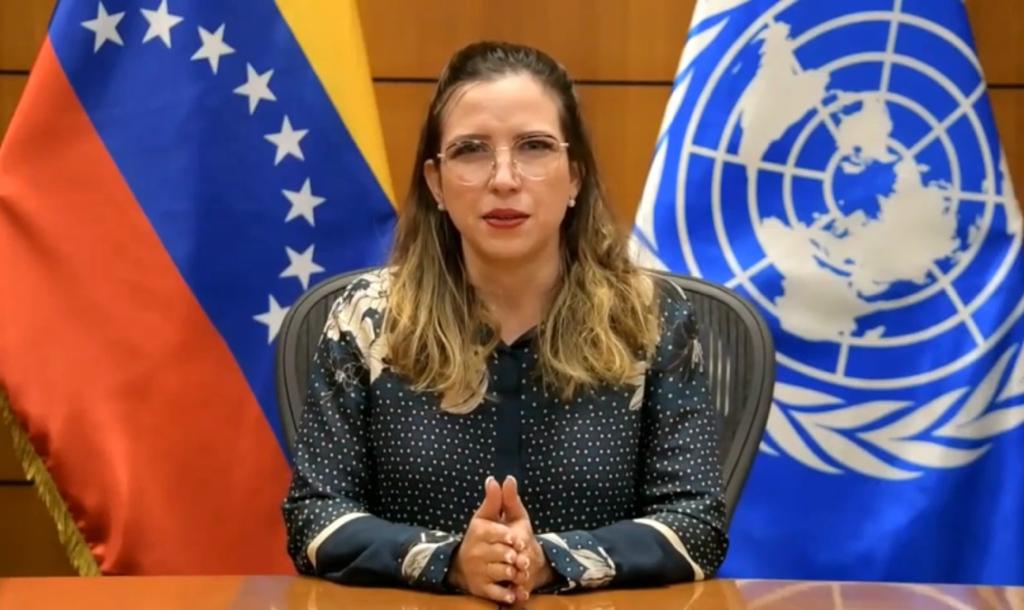The Vice-minister for Multilateral Issues of the People’s Power Ministry for Foreign Relations, Daniela Rodríguez, participated this Monday telematically in the High-Level Segment of the Conference on Disarmament, held in Geneva, Switzerland, ratifying the commitment of the Bolivarian Republic Venezuela against the international disarmament, non-proliferation and arms control regime.
During her speech, the Venezuelan diplomat highlighted the importance of activating the Conference on Disarmament “to offer the world a privileged platform for negotiation and confidence-building, as a guarantee of peace and security”, before the multiform threats to which the countries are exposed, considering “that nuclear disarmament is the highest priority on the international security agenda.”
On January 22, 2021, the Treaty for the Prohibition of Nuclear Weapons (TPNW) entered into force, a legal instrument that expressly and comprehensively prohibits these weapons and addresses the humanitarian impact associated with their testing and use, therefore “Venezuela considers this to be one of the most important events for the disarmament and non-proliferation regime of the last 50 years, which leads us to take one more step to achieve the aspiration of the peace-loving peoples, towards the total elimination of these weapons”, emphasized the representative of the South American nation.
Likewise, Venezuela congratulates the ratification by the Republic of Cuba of the Comprehensive Nuclear Test Ban Treaty, and the decision of the United States of America and the Russian Federation to extend the New START nuclear disarmament agreement until February 2026.
Impact of the conditioning of nuclear disarmament
In her speech, the diplomat expressed the concern of the Bolivarian Government “about the impact of the growing tendency of some States to condition nuclear disarmament, alluding to geopolitical considerations, and subjective non-consensual categorizations, on the international security environment”, for which she rejected the “repositioning of nuclear weapons as the central axis of new doctrines of national security, as is the case of the revision of the nuclear position of the United States of America, of February 2018”.
“Venezuela rejects the militaristic approach to outer space and considers it essential to move towards the formulation of a legally binding international instrument that will prevent it from becoming a new war scene”, she said.
Finally, she called on all member states to dialogue and agreement so that the Conference on Disarmament can resume its substantive work, as the only multilateral negotiating body on disarmament, in accordance with the mandate that has been conferred on it. “We are all called to contribute to the recovering of this forum’s mission, avoiding its politicization”, she emphasized.
The Conference on Disarmament adopted its current name on February 7, 1984, after beginning in 1978 the redefinition of the disarmament structures of the United Nations in the First Special Session of the General Assembly dedicated to Disarmament, where it was decided that it should remain as the main deliberative body of the international organization on the matter, which is why the Geneva Disarmament Committee (1979) became the only multilateral negotiating body for disarmament issues.



